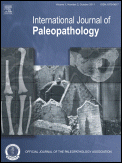
International Journal of Paleopathology
metrics 2024
Charting the Path of Health and Disease in History
Introduction
The International Journal of Paleopathology, published by Elsevier Science Inc, serves as a leading scholarly platform dedicated to the study of ancient diseases and their effects on human populations throughout history. Since its inception in 2011, this journal has garnered a prestigious reputation in the field, earning a 2023 Q1 ranking in Archeology and a Q2 ranking in Pathology and Forensic Medicine, attesting to its rigorous peer-review process and high-quality research output. With an impressive Scopus ranking of 38th out of 413 in Archeology and 98th out of 208 in Pathology and Forensic Medicine, the journal is positioned within the top percentile of its categories, reflecting its significant contribution to the advancement of knowledge in these disciplines. While the journal is not open access, it offers invaluable insights into the interactions of health, disease, and societal changes over time, making it an essential resource for researchers, professionals, and students looking to explore the intricate connections between past populations and their health.
Metrics 2024
 0.67
0.67 1.30
1.30 1.30
1.30 36
36Metrics History
Rank 2024
Scopus
IF (Web Of Science)
JCI (Web Of Science)
Quartile History
Similar Journals

International Journal of Historical Archaeology
Advancing Knowledge: The Premier Platform for Archaeological ScholarshipInternational Journal of Historical Archaeology, published by SPRINGER, stands at the forefront of archaeological scholarship, focusing on the intricate relationship between historical events and archaeological findings. With an impressive impact factor underscored by its ranking in the Q1 quartiles across various categories, including Archeology and History, this journal serves as a premier platform for researchers, professionals, and students alike to disseminate groundbreaking findings and theoretical advancements in the field. Although it is not an Open Access publication, the journal provides valuable insights through its rigorous peer-review process, enhancing the quality of contributions. Covering a breadth of topics from 1997 to 2024, it is vital for advancing knowledge in historical archaeology and offers an essential resource for those invested in understanding our shared past through the lens of material culture. The journal's commitment to fostering interdisciplinary discussions enriches the scholarly community and supports the evolution of methodologies and perspectives within the domain.
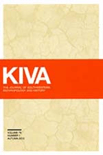
Kiva-Journal of Southwestern Anthropology and History
Advancing Knowledge in Anthropology and HistoryKiva - Journal of Southwestern Anthropology and History is a distinguished academic journal published by Routledge Journals, Taylor & Francis Ltd, that serves as a vital resource for scholars in the fields of anthropology, archaeology, and history. With an ISSN of 0023-1940 and an E-ISSN of 2051-6177, this journal has established itself as a significant avenue for scholarly communication since its inception in 1964. It consistently ranks in the top quartiles, including Q1 in Archaeology and Q2 in Anthropology, reflecting its high impact and rigorous peer-review process. Covering a wide array of topics pertinent to the Southwestern United States, Kiva invites original research articles, reviews, and methodological papers that advance understanding of the region's rich cultural heritage and historical narratives. While currently not open access, its commitment to disseminating quality research makes it an essential reading for researchers, professionals, and students aiming to explore the multifaceted dimensions of southwestern studies.

Journal of Egyptian History
Navigating the Tapestry of Egypt's Historical Narrative.The Journal of Egyptian History, published by BRILL, stands at the forefront of scholarly exploration in the vibrant field of Egyptian historical studies. Established to enhance our understanding of Egypt's rich historical landscape, this journal is recognized for its substantial contribution to the historiography of ancient and modern Egypt, evidenced by its impressive Q2 ranking in the history category, as well as a significant Scopus rank of 379 out of 1760, placing it in the 78th percentile. With an ISSN of 1874-1657 and an E-ISSN of 1874-1665, this journal publishes peer-reviewed articles that encompass archaeological findings, cultural analyses, and interdisciplinary approaches that are essential for scholars, professionals, and students alike. Although it operates under a subscription model, researchers can access a wealth of knowledge through its dynamic publications that span various periods, particularly focusing on converged years from 2008, 2010 to 2019, and 2021 to 2024. Located in Leiden, Netherlands, the Journal of Egyptian History is a pivotal resource for those dedicated to advancing the study of Egypt's past within the broader context of global history.

Environmental Epidemiology
Bridging disciplines to tackle pressing environmental health challenges.Environmental Epidemiology is a leading open-access journal published by Lippincott Williams & Wilkins, dedicated to advancing the field of environmental and public health research. Since its establishment in 2017, this journal has emerged as a vital platform for scholars and practitioners interested in the intricate relationships between environmental factors and health outcomes. With an impressive impact factor reflecting its rigorous peer-review process and a robust Scopus ranking—notably holding Q1 positions in categories such as Health, Toxicology and Mutagenesis, and Public Health—this journal is essential for those seeking to explore the latest findings and methodological advances in environmental epidemiology. Open access since 2018, it ensures wide dissemination of research findings, promoting accessibility and engagement among a global audience of researchers, policymakers, and students. As it continues to converge through 2024, Environmental Epidemiology remains committed to publishing high-quality articles that address pressing environmental health challenges, fostering interdisciplinary collaboration and knowledge sharing that is crucial for developing effective public health interventions.
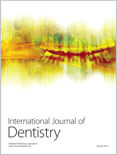
International Journal of Dentistry
Bridging Knowledge and Practice in Oral HealthInternational Journal of Dentistry, published by HINDAWI LTD, is a prominent peer-reviewed journal in the field of dentistry, with a strong focus on disseminating cutting-edge research and advancements in both general and specialized dentistry. With an impact factor reflective of its robust scholarly contributions, the journal has been an Open Access platform since 2009, ensuring that vital research findings are freely accessible to the global readership, fostering collaboration and innovation in the dental community. Based in the United States, the journal is recognized for its significant ranking of Q2 in the category of Dentistry (miscellaneous), and it holds a respectable position within Scopus, ranking #57 out of 132 in General Dentistry, placing it in the 57th percentile. Researchers, professionals, and students alike will find valuable insights and state-of-the-art developments as the journal aims to bridge the gap between research and practical implications in dentistry from 2011 through 2024. Join a community dedicated to advancing oral health through high-quality scientific inquiry and practical applications.

International Journal of Circumpolar Health
Connecting research and policy for healthier circumpolar lives.Welcome to the International Journal of Circumpolar Health, a premier platform dedicated to the study and exploration of health issues affecting circumpolar populations. Published by Taylor & Francis Ltd, this journal has been an Open Access resource since 2002, ensuring wide dissemination of knowledge critical to the health and well-being of communities across the Arctic and sub-Arctic regions. With an ISSN of 1239-9736 and an E-ISSN of 2242-3982, the journal's academic rigor is reflected in its impressive category quartiles—ranking Q3 in Epidemiology and Q2 in Health (Social Science), Medicine (Miscellaneous), and Public Health, Environmental and Occupational Health as of 2023. The journal spans converged years from 1997 to 2024, covering a rich interweaving of disciplines that appeal to researchers, professionals, and students alike, all of whom are invested in innovative health solutions and policy frameworks tailored to the unique challenges of circumpolar communities. Contribute your voice to the discourse and deepen your understanding of health in extreme environments.
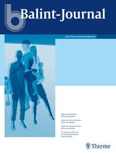
Balint-Journal
Elevating Clinical Practice through Rigorous Research.Balint-Journal is an esteemed academic publication dedicated to advancing the field of psychosomatic medicine and psychotherapy. Published by GEORG THIEME VERLAG KG, this journal serves as a vital platform for researchers, professionals, and students to disseminate high-quality research findings, innovative methodologies, and clinical insights. With its ISSN 1439-5142 and E-ISSN 1439-9008, the journal presents a commitment to rigor and excellence, making it an essential resource for those engaged in interdisciplinary studies that bridge psychological and physical health. Although the journal currently operates under a subscription model, it remains a significant player in the academic community, contributing to a deeper understanding of psychosomatic conditions and their treatment. Positioned in a critical niche, Balint-Journal aims to foster collaborations and discussions among academia and clinicians, ultimately enhancing patient care and outcomes in psychosomatic practice.

Anthropologie-International Journal of Human Diversity and Evolution
Illuminating the Spectrum of Anthropological ResearchAnthropologie-International Journal of Human Diversity and Evolution is a prominent peer-reviewed journal published by the esteemed MORAVIAN MUSEUM in the heart of the Czech Republic. With a focus on anthropology, this journal serves as a vital platform for the dissemination of innovative research that explores human diversity and evolutionary studies. The journal operates under a rigorous academic framework and is categorized in the Q3 quartile for anthropology in 2023, reflecting its significance in the field. Although it does not currently offer open access options, Anthropologie facilitates the exchange of knowledge through its carefully curated articles spanning diverse topics within human evolution. Its Scopus ranking (320 out of 502 in social sciences) underscores its role as a relevant source for scholars and professionals alike, fostering dialogue and advancements in understanding human diversity. Researchers, students, and practitioners can look forward to engaging content that not only enlightens but also inspires further inquiry into anthropological studies.
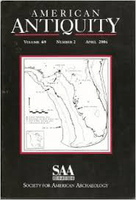
AMERICAN ANTIQUITY
Shaping the Future of Archaeological Discourse.AMERICAN ANTIQUITY, published by Cambridge University Press, stands as a premier journal in the fields of archaeology, arts and humanities, history, and museology. With an enduring legacy since its inception in 1935, this journal has consistently ranked in the Q1 category across several disciplines, reflecting its significant impact and authority in shaping contemporary scholarly discourse. It boasts impressive Scopus rankings, placing it in the 99th percentile for archaeology and history, which underscores its critical role in advancing research and understanding of American archaeology and related fields. Although it does not currently offer open-access options, the journal remains a vital resource for researchers, professionals, and students seeking high-quality, peer-reviewed content. As it converges toward 2024, AMERICAN ANTIQUITY continues to foster innovative scholarship and preserve knowledge, making it an essential reading for anyone invested in the exploration of cultural heritage and historical narratives.

INTERNATIONAL JOURNAL OF OSTEOARCHAEOLOGY
Decoding the Stories Written in Human RemainsWelcome to the INTERNATIONAL JOURNAL OF OSTEOARCHAEOLOGY, an esteemed publication in the fields of anthropology and archaeological science, published by Wiley. Established in 1991, this journal has consistently provided a platform for groundbreaking research, with its scope encompassing the study of human remains in archaeological contexts. Boasting an impressive impact factor and ranking in the top quartile (Q1) for Anthropology and Archaeology, the journal stands at the forefront of academic discourse, particularly in the arts and humanities. With Scopus rankings placing it within the 88th percentile in Archeology and the 81st percentile in Anthropology, it serves as a vital resource for researchers, professionals, and students alike. Though currently not offering Open Access, the journal remains committed to disseminating high-quality research that contributes significantly to our understanding of past societies through the careful study of osteological remains. Explore our extensive archives and join a community of scholars dedicated to advancing knowledge in osteoarchaeology.